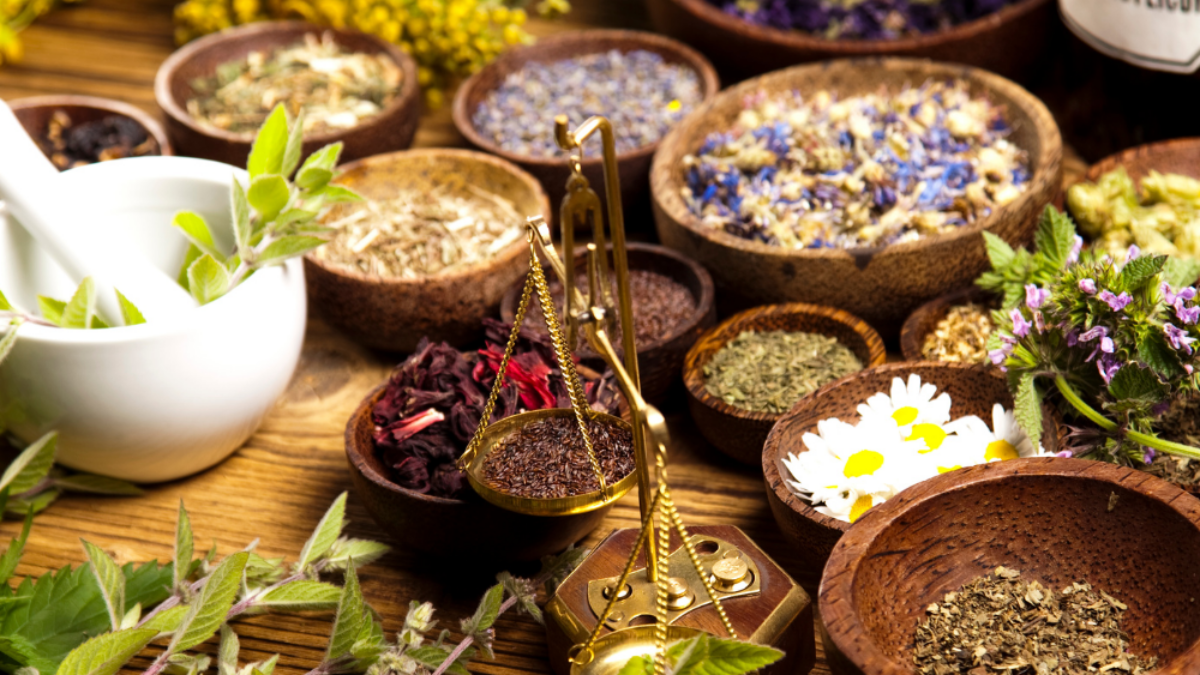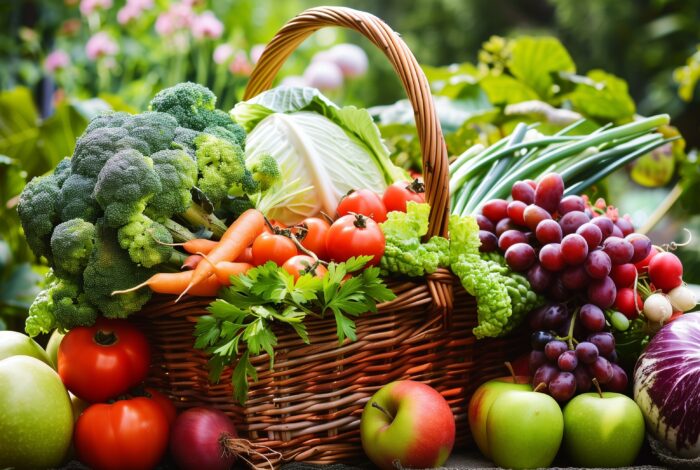Herbs and spices are an integral part of the Greek Mediterranean diet. They are essential ingredients in Greek cuisine, not only because they enrich food with flavour and aroma, but also because of their characteristic benefits.
Herbs and spices belong to the broader category of aromatic and medicinal plants.
Herbs are mainly used in cooking as fresh or dried leaves, to impart flavour and aroma.
They are often combined with spices for a richer flavour. Unlike herbs, spices come from other parts of the plant, such as the seed, bark, root or bud. They are often dried, usually have a more intense flavour, and are used in smaller quantities in cooking.
Many herbaceous plants have other uses beyond cooking. Some herbaceous plants or parts of them are also used for pharmaceutical purposes or as infusions. Therefore, the same plant can have both culinary and medicinal uses.
The most common herbs in Greek cuisine include basil, dill, mint, parsley, thyme, rosemary and oregano. They are used fresh or dried in a wide range of recipes, from salads and sauces to cooked foods and grilled meat.
Greek herbs often grow on low-growing plants, subshrubs or shrubs, depending on the species. We find them throughout Greece, from Crete to Macedonia and from the Aegean Sea to the Ionian Sea. This natural environment with its Mediterranean climate favours the growth of herbs with strong aromas and high antioxidant content, including vitamins, minerals, phenolic compounds and essential oils.
Antioxidants are crucial for protecting cells from oxidative stress, helping to, among other things, reduce the risk of chronic diseases (such as diabetes, heart diseases, cancer) and strengthen the immune system.
Spices have a correspondingly special role in the Greek diet due to their aromas and high nutritional value. They are also rich in antioxidants, with numerous beneficial effects, depending on the spice. Some of the most common spices are pepper, cinnamon, clove, cardamom, turmeric and nutmeg.
One of the most precious Greek spices is Kozani saffron with Protected Designation of Origin (PDO), also known as Greek saffron. Kozani saffron is known the world over for its intense flavour and colour quality, as well as its strong antioxidant properties, thanks to its crocins, picrocrocin and safranal contents.
Greece is rich in herbs that have been used for centuries for both cooking and healing purposes. Due to its Mediterranean climate and geomorphology, the country hosts a wide variety of aromatic and medicinal herbs that grow naturally in many regions.
Some the most famous Greek herbs include mountain tea, sage, chamomile, linden, mint, dittany, thyme, oregano, lemon balm, lavender, marjoram and nettle. Many of these have been recognised for their pharmaceutical actions – depending on the herb – including antioxidant, anti-inflammatory, soothing (anxiolytic), healing, diuretic and digestive (many herbs enhance digestion and alleviate symptoms such as bloating and indigestion).
In conclusion, Greek herbs and spices are rich in nutritional value and beneficial properties, making them an essential part of our daily diet.










